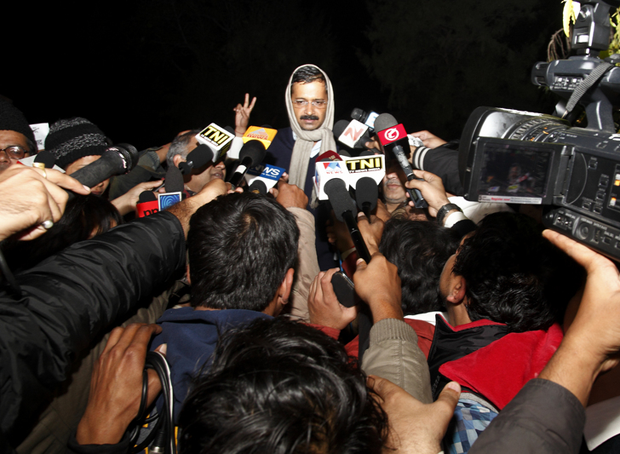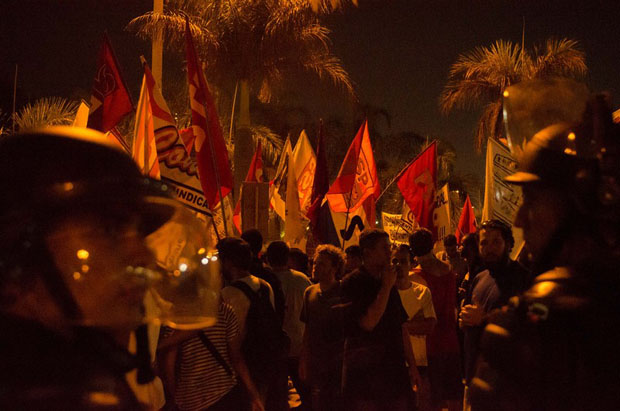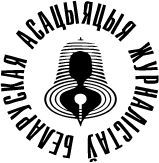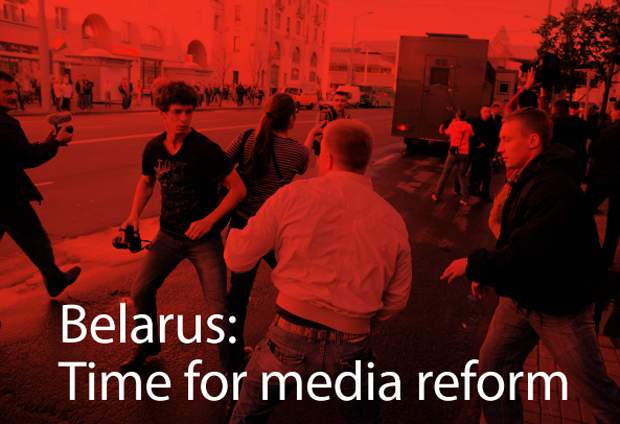17 Feb 2014 | Digital Freedom, India, News and features

Delhi Chief Minister Arvind Kejriwal called off the 30-hour protest (Dharna) outside Rail Bhavan on January 21, 2014 after few of his demands were considered.
Arvind Kejriwal, Delhi’s erstwhile chief minister, gained popularity among the ‘aam aadmi’ – ordinary citizens – because of his tough anti-corruption stand. Many saw his newly formed party, the Aam Aadmi Party (AAP) as a breath of fresh air. His antics and strategies to grab media attention didn’t disappoint either.
During his campaign for Delhi’s highest seat, he cut off electricity wires outside peoples homes to mark his defiance of what he said are corrupt electricity meters that overcharge people. Once in office, he sat in protest against Delhi’s own police force, demanding that the Central Government that controls the Police in Delhi, the country’s capital, immediately transfer its control to his government. Kejriwal has become an urban icon. Always wrapped in his trademark muffler, with a seemingly constant cough, his image is being parodied intensely on the internet. He insisted on being sworn in as Chief Minister of Delhi, in an open –to-all public function at one of Delhi’s biggest grounds instead of at the office of the Lt. Governor of Delhi, as is practice. For a while, he was adamant about holding a special session of the Delhi Assembly, called for legislating the Jan Lokpal Bill seeking to establish an anti-corruption ombudsman, in one of the capital’s largest stadium instead of inside the Assembly itself. On 14th February, after unsuccessfully trying to introduce the Jan Lokpal Bill on the first day of Delhi’s State Assembly, he held a press conference in the pouring rain to announce that he was resigning over this issue. This capped his 49 day tenure, and just before ending his press conference, he declared that che is ready to “sacrifice his life for the country” in his fight against corruption.
In terms of theatrics that inescapably accompanies his politics, Kejriwal is caught the imagination of India’s common man. He is always on television. That any politician willingly resigned as chief minister will not be lost on Indians, used to seeing politicians hang onto power with dear life. Many are looking to Kejriwal to make a sizable dent in the national elections, projected to be held in April 2014.
While campaigning and during this term in office, Kejriwal unveiled an arsenal of ideas to battle status quo – and take on people in authority head on – including his idea of asking the common man to use the mobile phone as a “weapon” to secretly film government and police officials demanding bribes. This proof then could be turned over to his government, which had set up an exclusive hotline to deal with corruption charges. Don’t get mad, get even – seems to be his motto as he urged residents of Delhi, “setting kar lo” – or fix them.
Media reports confirm that as a result of “open season on sting operations” the sale of spycams have increased in Delhi, with some shopkeepers estimating that the sale of these hidden cameras have shot up almost 90%. Spy cameras are available in the form of pens, keyrings, buttons, watches, pen-drives and eyeglasses, and on a more expensive scale, in jewellery and other bespoke items.
This isn’t the first time AAP has recommended the use of spycameras. Days before the New Delhi vote, the media reported that AAP were fitting slums with spycams to ensure that candidates of other parties did not go there to try and buy votes – and if they did – they would be caught. Over 2,000 spycams were reportedly used for this operation.
The AAP party is not the first — and certainly won’t be the last — in suggesting the use of cameras, especially through mobile phones, for citizen empowerment. In fact, when Delhi’s traffic police first launched a page on Facebook, citizens began posting pictures of cops breaking traffic laws in hopes that they be reprimanded. Similarly when the Municipal Corporation of Delhi started its Facebook page, people took advantage of the platform to post pictures of shoddy or incomplete works in their neighbourhoods.
Community video project, India Unheard, has armed citizen journalists from small towns and villages with cameras, and they report on development and other issues, and publish these videos on the internet. In many areas, due to the spotlight on them, government officials have responded to these negative reports and taken action. The parent outfit, Video Volunteers, even ran a campaign to check the “real” progress of India’s Right to Education Act, by bringing out over 100 videos that document the real implementation of this act on the ground.
The use of technology “from below” to hold those in power accountable is also known as sousveillance, a word that comes the French word “sous” (from below) with the word “viller” coined in 1998 by Professor Steve Mann of the University of Toronto. In the West, sousveillance is being looked at by some as an foil to mass surveillance; a manner in which citizens can watch those watching them. Others, however, express some doubts at a society where citizens are pointing cameras at a state that is watching them, and perhaps ultimately leading to a situation where everyone is watching each other. Surveillance is normalized because it is so institutionalized.
However, sousveillance is not necessarily targeted towards government and law enforcement officials alone. In New York, a project called Hollaback asks women to take pictures of their harassers and upload it to their site. The movement has expanded and extends to Indian cities as well. And gadgets like Google Glass will make humans capable of recording their perspectives on a 24/7 basis, amassing huge data.
So it appears that at a time when civil society is up in arms against big brother surveillance schemes run by the government because of their privacy breaches, we are simultaneously doing the same to ourselves, with what some call little brother surveillance.
Jay Stanley, Senior Policy Analyst at ACLU writes, “Under the old expectation, the default expectation was that any given event would not be photographed… That is rapidly being replaced by a new mindset in which the default expectation is that something taking place in public will be recorded. Thus you often hear expressions of disappointment when a disputed or dramatic public event is NOT caught on video.” He also raises the point that citizen video footage might give the state a reason to scale down their mass surveillance activities, because video evidence can simply be collected from private photos and videos. However, it seems unlikely, given what we know about governments world wide, that most countries will be ready to give up their schemes to the off-chance that somebody-recorded-it.
Of course, one can argue there is a subtle difference between CCTV cameras that clearly announce their existence, people pointing mobile phones at each other on the street, and the proliferation of spycams to “fix” people. There is also legitimacy attached to this process when the chief minister of a state asks its citizens to collect proof of wrongdoing as the basis of taking action, as has been done in New Delhi. In fact, in a speech made just about three weeks after he took office, Kejriwal announced that he is quite sure that corruption must have come down at least 20-30% in Delhi, to thunderous applause. A helpline the new government has set up even offers to tutor citizens in how to conduct sting operations against corrupt officials. In an editorial by the Indian Express, the paper advises that, “Sting operations are an ethical minefield. They are based on lies and entrapment, even if in the service of a larger cause. They are easy to manipulate at several levels, including editing to convey the desired impression of a meeting. This unease about the subterfuge and distortion of using undercover cameras is the reason stings are not admissible as legal evidence. How can they be the basis of prompt government action, then?”
The truth is that India has a problem of entrenched corruption, and the AAP’s ride and subsequent anti-graft ideas address these concerns head on. Previously India’s Central Vigilance Commission in 2010, had encouraged people to conduct stings on government officials, even as a draft privacy law, yet to be passed by the Indian parliament, said such operations could violate individual privacy. Others worry that programs like these need protections such as a Whistleblowers Act and provisions to protect anonymity. However, the concept of sting operations, made popular by a vigilante media has become so popular that there is now an Indian website that collates India sting operations for anyone to see.
The government of India’s capital is installing more and more CCTVs for safety reasons, the Central Monitoring System is being deployed to track citizens online behavior, and now the Delhi government is glorifying sting operations through radio ads and billboards. Ultimately, the AAP, consciously or unconsciously, has given its vote to a society based on sousveillance.
Can the encouragement of spycams and secret mobile tapings end up in people spying on neighbours, and perhaps even blackmail them? Could Delhi’s public spaces shrink because of the “spycam moral police”? Are adequate privacy frameworks in place?
The AAP needs to think about these questions, especially if it plans to field these ideas during the national election campaign trail.
Point and shoot are never orders to be given lightly.
This article was published on 17 February 2014 at indexoncensorship.org
17 Feb 2014 | Americas, Brazil, News and features

Protests against increase in public transportation costs in Rio de Janeiro on 13 February (Image: Mauricio Fidalgo/Demotix)
On Friday 14 February, Brazil’s Minister of Justice, José Eduardo Cardozo, announced a bill to regulate safety measures during protests. The bill allows for use of force by the military police and punishment for violent actions during demonstrations, and will be sent to congress for consideration in the coming days. The move comes after the death of Bandeirantes Network cameraman Santiago Andrade on 10 February, from injuries sustained covering a protest. This is the latest move by Brazil’s government to control popular discontent ahead of this summer’s FIFA World Cup.
The government is rushing vaguely worded, extraordinary bills defining “terrorism” to the floor of congress. Currently, there are no specific laws for the crime of terrorism in Brazilian legislation. Crimes are classified in the National Security Act, created during the military dictatorship. A number of bills tackling this issue, which could potentially penalise protest actions, are now being debated in congress, without input from the population.
A street protest against rising bus fares in Rio de Janeiro on 6 February erupted in violence, when gas bombs and fireworks thrown by some demonstrators injured seven people, including Santiago Andrade. The cameraman was hit by a rocket firework launched by two protesters, which burst over his head. He later died from the injuries, and the two protesters were arrested in controversial circumstances.
The incident generated national uproar. Congressmen called the protest an act of terrorism and promised action. A number of figures within the Brazilian government, including President Dilma Rousseff, condemned the “escalating violence in protests”. Citing public security, congress moved quickly to table bills aimed at defining actions in public places — both violent and non-violent — as terrorism. Bill 499/2013, which has been fast tracked for consideration, defines terrorism as “causing terror or widespread panic” and threatens penalties of up to 30 years. The bill further stipulates that acts of terror committed with explosives increases the penalty by one third. It also criminalises “Black Bloc” protest groups, and wearing masks. Legal experts have criticised the bill for its vague language which leaves room for wide interpretations. Further, critics contend that it shows the government’s intent to use the bill as a tool to suppress popular protests during the World Cup.
The controversial Bill 728/2011 was created to punish “infractions” committed during the World Cup. In its text, acts of terrorism are associated with religious or ideological positions, and it also limits Brazilians’ ability to strike. The bill was nicknamed the AI-5 Cup, after the 1968 AI-5 act, which in gave extraordinary powers to the then-president and suspended key civil and constitutional guarantees for over 20 years. Under pressure from Brazil’s civil society, 728 was shelved.
Still under consideration in congress, however, is Bill 236/2012 — an anti-terror project that promises to modernise Brazil’s penal code, which dates from 1940. While it categorises terrorism, 236 does not define it. Among its most dangerous threats to freedom of expression is the criminalisation of disturbing the peace, and damage to public property by “vandals” and “vagrants”. The bill does not further define or clarify these terms.
Former justice minister Miguel Reale Jr, a renowned jurist and professor of law at the University of Sao Paulo, criticised the law’s “legal nonsense” and labelled it a setback for journalism. The bill would criminalise defamation and impose four year sentences without adequately defining this offence. He has launched a campaign against it, which has gained support from the legal community.
Bill 236 also contains “crimes against sporting and cultural events”. Any person who promotes “tumult” within 5 km of a sporting event would be imprisoned for up to two years, and the bill would also block protest access to the sport or cultural venue for up to three years. If applied, any popular protest on game days could be banned.
But whether or not some or all of the bills are passed, President Rousseff looks set to be able to curtail protests. On 20 December, a manual on the enforcement of law and public order, put together by the Ministry of Defence, entered into force. The manual defines “opponent forces” as persons, groups or organisations that provoke radical and violent actions, and cites the blocking of public streets as a major threat. Under certain conditions, the manual allows the president to give police powers to the armed forces.
Brazilians who wish to take to the streets, could have an interesting spring.
This article was posted on February 17, 2014 at indexoncensorship.org
17 Feb 2014 | Events
Following launches in Minsk and Brussels, join Index on Censorship for the UK launch of our important new policy paper ‘Belarus: Time For Media Reform’.
Belarus continues to have one of the most restrictive and hostile media environments in Europe. Recent years have brought no genuine improvements to the media situation. In a country that has not held a free and fair election since 1994 the authorities keep tight control over the media as a means of preserving their power.
Join us to ask:
- What are the key challenges for media freedom in Belarus?
- Does the internet change the rules of the game?
- What trends is Belarus setting for other authoritarian regimes?
- How should the EU and the international community respond?
With Andrei Bastunets (Belarusian Association of Journalists, Minsk) and Andrei Aliaksandrau (Index on Censorship, London).
WHEN: Thursday 27th February 2014, 18:30 – 20:00 inc. drinks
WHERE: Free Word Centre, 60 Farringdon Road, EC1R 3GA
TICKETS: RSVP here
@IndexEvents – #Belarus
Presented in collaboration with the Belarusian Association of Journalists

17 Feb 2014 | Digital Freedom, News and features, Turkey

Over the past few weeks, the ruling Justice and Development Party (AKP) in Turkey has deployed a curated mix of paid-for advertising, op-eds in pro-government newspapers, tweets and off-the-cuff press statements to justify their curbs on internet freedom.
One of the most persistent tactics used by AKP has been so-called “porn lobby” smearing. Back in 2011, Umit Boyner, an ex-retail executive and president of the Turkish Industry and Business Association, was decried as “pro-porn” for being anti-censorship. Not only porn – “violent websites,” “instructions on how to kill your mother”, “sex with animals” and more lurid possibilities would come about, argued Bulent Arinc, deputy prime minister, if access to the web was unfettered.
More recently, pro-government newspaper The Star, convinced readers that censorship opposition was coming from the vaguely described “porn lobby.” “So would you want your child to be a victim of sexual abuse, porn, gambling or other hideous acts?” asked editors.
Tweets from AKP deputy Necdet Unuvar (“Today is safer Internet day, they used to call this a censure but they do not anymore,”) and another deputy, Cevdet Erdol, (“All forms of addiction: tobacco, drugs, alcohol, weed, Internet whatever they might be, we continue our struggle against them. For our kids“) sought to conjoin 5651 censorship with AKPs conservative, quasi-religious philosophy: As one analyst translated it “high moral laws: morals to protect the youth.”
The AKP also launched a paid-for advertising campaign: A bruised woman, clearly the victim of domestic violence, with the strapline “Violence is a crime. What about the Internet? Absence of rules does not mean liberty!”
Internet commentator Glyn Moody, who blogged about the bizarre campaign for Techdirt, told Index on Censorship “This extraordinary ad belongs to a tradition of regarding the online world as a kind of lawless “Wild West,” that needed to be tamed.”
Erdogan has also been keen to draw comparisons internationally. On the same day as 2000 protesters clashed with water-cannons in Istanbul, he told a journalist working for Al Jazeera TV network “Turkey is almost more free than some states of the European Union.” He justified his claim: “When you refer to the Gezi Park events, why do you not see the events in Frankfurt, Hamburg? Have you seen what the police did there? Why do you not see [sic] what happens in England?”
Prosecutors in Germany and England were accused of being heavy-handed after protests and street unrest in Frankfurt, Berlin and London in 2011 were met with long jail sentences.
Bulent Arinc has also argued, that Turkey is “freer compared to many other countries,” and “has freedom of the press,” although a week later international NGO Reporters Without Borders slammed the nation in a global survey of journalistic freedoms, ranking it 154th globally.
Pro-government newspapers have even posited a slightly dubious economic argument : Sabah, a daily newspaper considered very favourable towards AKP, argued that Silicon Valley giants would be keener to participate in the Turkish market as the legislation removed prison sentences in favour of punitive fines.
So did all this work? It depends on how you judge success. Emre Kizilkaya, a Turkish journalist, sees censorship as a partisan issue anyway.
“Most AKP voters support it, while almost all opposition voters are against it. So, it has become a partisan issue. As such, the PR campaign probably didn’t swing votes – but it further cemented the position of AKPs own voters.”
Pinar Tremblay, a Turkish analyst and academic, thought understanding of the laws was limited. “The majority of the people are not yet aware what the law entails, because they have not yet experienced it.”
“No matter what the government may say about protecting children or stopping violence against women through censorship,” said Gurkan Ozturan, a citizen journalist and blogger based in Turkey. “everybody knows that those issues are not being addressed to in real life, physically on the street.”
He goes on “This bill has been prepared to re-initiate the government of fear in Turkey. But as with OccupyGezi protests the people have passed beyond the fear-threshold.”
If polling data is to be believed, the AKP now commands 40-50% of Turkish approval ratings. But 5651 has provoked intense street protests, condemnation from human rights groups, and even comparisons with the early days of the Third Reich.
The passing of the legislation provoked half a million tweets, according to media reports, split across English and Turkish hashtags. The pro-censorship hashtag received a handful in comparison.
Still, President Gul – who still needs to ratify the bill, has indicated he will. Turkey is going dark, soon.
This article was posted on February 17, 2014 at indexoncensorship.org





